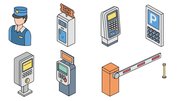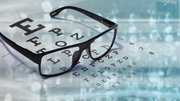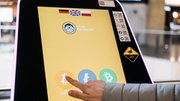News
Never lose your car again
January 23, 2011
Not remembering where they parked their cars is no longer a problem for shoppers at Santa Monica Place, a shopping destination in Los Angeles.
According to the LA Times, the center recently deployed kiosks that allow a driver to key in her plate number — or just the first few characters — on a touchscreen to bring up a photo of her vehicle and a description of its location. It also features red and green lights and signs showing the number of available spaces by level.
The system, which uses a network of cameras and a central computer, "has proven so far to be a big assist," said Doug Roscoe, senior manager of Santa Monica Place. "We don't have close to as many direct assists." In mall security parlance, "direct assists" refer to occasions when a security person drives a frantic shopper around in an electric cart to find a vehicle.
However, civil libertarians are worried about privacy issues because the surveillance cameras could be available to police and auto repossessers. For example, the Sacramento Police Department and Arden Fair Mall partnered to install license plate readers on mall security vehicles. The vehicles roam parking lots and garages in search of "hot list" vehicles provided by the state Department of Justice. If a car with a "hot" plate is spotted, mall security guards view closed-circuit TV footage to locate the vehicle's driver and alert police.
To date, the scans have helped police recover 44 stolen vehicles and arrest 38 individuals, according to mall security manager Steve Reed.
Both shopping centers are owned by the U.S. mall giant Macerich Co., which extols the surveillance systems' ability to locate lost and stolen cars. However, some wonder whether the convenience of such systems justifies their intrusive nature.
Under U.S. law, the entity taking the video owns it and can largely use or share it however it likes as long as the video is taken in public. There is, however, a difference between being allowed to share and being required to share. Police do have the power to compel the owner of the video to share it, usually through a subpoena.
 ChatGPT
ChatGPT Grok
Grok Perplexity
Perplexity Claude
Claude









